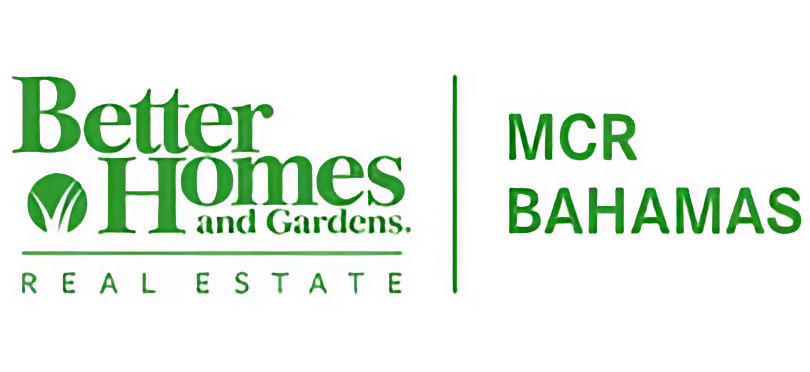- Average Rental Price in The Bahamas: 2024 Guide - April 1, 2024
- 10+ Best Seaplane Tours & Charters in The Bahamas - March 20, 2024
- Old Fort Bay Club: 2024 Luxury Review - March 16, 2024
Aspiring expats from all countries are eager to move to The Bahamas for its beachy weather, laid-back lifestyle, and friendly population.
But before you buy your piece of luxury real estate, you might want to know the average cost of living in The Bahamas.
Although The Bahamas can be expensive in some aspects, the cost of living isn’t much different than it is in the United States.
Better Homes and Gardens MCR Bahamas stands ready to assist you. Our Better Homes and Gardens Real Estate team boasts a deep understanding of The Bahamas’ most exclusive neighborhoods, offering access to homes and real estate that have yet to hit the public market. We’re committed to locating the ideal residence that caters to your unique requirements, providing insightful guidance and counsel to ensure you make the best choice possible.
As your dedicated buyer’s agent, we will guide you through every purchase step, from securing the most profitable deal and overseeing inspections to handling the final closing details. Our seasoned agents will be with you every step of the way, streamlining the acquisition process into a smooth and enjoyable journey. With this level of commitment, we have been able to represent billions of dollars worth of property.
Looking for luxury real estate in The Bahamas?
Table of Contents
What is the average cost of living in The Bahamas?
Cost of living database Numbeo reports the monthly average cost of living in The Bahamas (excluding rent) is:
- Family of 4: $4,382.29/month
- Single person: $1,232.82/month
Rent for an average 1-bedroom apartment in The Bahamas costs $1,007.69, while rent outside cities is closer to $911.54.
Naturally, the price goes up for a 3-bedroom apartment, at $2,403.09 for city apartments, and $2,515.38 outside of the city center.
This would bring us to a total cost of living average in The Bahamas:
- Family of 4: $6,841.525
- Single person: $2,192.87
Keep in mind that these are averages across the whole country. You might find significantly cheaper or more expensive rents depending on where you’re living in The Bahamas, the chosen education provider for your children, and other adjustments (more on those later).
Cost of Living in Nassau, Bahamas
If you have a home in Nassau, you’ll have a slightly more expensive cost of living. Nassau is the capital of The Bahamas with a population of 240,000. Located on New Providence Island, it’s a tropical paradise that boasts some of the best beaches, luxury communities, and exquisite culture in the world.
Here are the overall monthly figures without rent (includes groceries, electricity, transportation, etc.):
-
- Family of 4: $4,686.12
- Single person: $1,311.94
And these are with an approximate monthly cost factored in:
-
- Family of 4: $7,462.02
- Single person: $2,348.55
You’ll also spend more in Nassau on entertainment and going out.
Cost of Living in Eleuthera, Bahamas
While there isn’t much updated data available for Eleuthera’s overall cost of living, we’ve compiled some averages for different expense categories:
- Utilities (incl. electricity, water, and garbage): $400/month
- Tuition for international schools: $5,000/year/child
- Daycare (preschool or kindergarten) : $100/month/child.
- Rent for a 1-bedroom apartment: $800
- Rent for a 3-bedroom apartment: $1,350
One of the most expensive parts of life in Eleuthera is often groceries.
Cost of Living in Paradise Island, Bahamas
Paradise Island has some expensive grocery and transportation costs, especially compared to other areas of The Bahamas. Here are some figures:
- Taxi transportation: $4.61/mile
- International schools: $8,842.50/year/child
- Utilities: $200/month
- Rent: $1,600-$15,000 BSD
What impacts the cost of living in The Bahamas?

The Bahamas are a series of islands, islets, and cays in the Atlantic Ocean. Since everything must be shipped by boat or plane, there are additional costs that all parties have to make up for, from business owners to the government to consumers.
Average Rent and Real Estate Prices
The Bahamas is the most expensive out of all Caribbean countries. Why? It’s mainly due to real estate.
While you can still find affordable accommodations, the creme de la creme luxury real estate The Bahamas is known for can be expensive.
Here are some average real estate prices for The Bahamas:
- The Bahamas overall: $3.5 million
- Exuma: $1.2 million
- Nassau: $591,830
- Eleuthera: $992,788
- Bimini: $1.14 million
Now, let’s look at the average monthly rent in The Bahamas:
- The Bahamas overall: $2,964
- Freeport: Up to $2,308
- Exuma: Starting at $300/night
- Nassau: $1,000-$3,000, depending on size
Rent might seem expensive to some expats, but if you’re coming from a big city like New York, San Francisco, or Toronto, your rent will feel equivalent or mid-priced, if not slightly cheaper.
Immigration Fees
Applying for permanent residency and establishing yourself in The Bahamas will cost you a few hundred or thousand dollars. The good news is that these aren’t monthly costs — just a one-time set of fees to get you started.
The application fee for permanent residency is $200, and a BSD 2,000 fee once your application is approved.
Check the Bahamian government website or consult a lawyer for information and fees for work permits, marriage certificates, and other administration.
Food Prices

Much of your grocery list will be imported, which means taxation before hitting the stores. The government also charges customs to the suppliers, which means businesses might have to add to the prices to make a profit.
And if you’re the type to regularly order products overseas, you’ll face a higher cost of living in The Bahamas.
Utilities
The cost of utilities in the Bahamas can be high. The average cost for basic utilities (electricity, water, garbage) in a 900sq ft apartment is around $250.
Keep in mind that there are additional surcharges on utilities and other services, which can add up. For example, if the price of fuel is high, you may notice that on your bill the surcharge on fuel costs more than the utilities themselves.
The Bahamian government is doing its best to keep surcharges low through subsidies, but it’s something to be aware of if you’re considering a move.
Transportation

Since buses don’t arrive frequently in rural areas, you might have trouble getting to specific locations with public transit. Without a car, daily taxis will increase your monthly budget.
If you do have a car, buying it on the island means you won’t have to pay import duties.
Leisure and Recreation
Like in other countries, you’ll have to budget for gym memberships, golf outings, and nights out.
However, you’ll experience recreation savings purely on the country’s enjoyable nature landscape and beaches. Swimming and suntanning are free, as are hikes in the country’s many nature trails.
Taxes
The Bahamas is considered a tax haven or tax neutral country, freeing individuals and businesses from corporate, income, inheritance, or wealth taxes.
However, it is wise to factor in budget room for import taxes (duties), social security taxes, and real property taxes.
Education and Schooling
The Bahamian government has long supported a robust education system for all of its citizens. Quality, accessible education for all has been a priority of the Government of The Bahamas, and today, they can boast some excellent statistics:
- More than 50,000 K-12 students learn across the 170 educational institutions in The Bahamas.
- 92% school attendance rate
- 93% literacy rate
When it comes to costs, children can attend free public schools or private or international schools. Fees can be upwards of $30,000 a semester at select private high schools, and range from $200-$500 a credit hour for colleges.
Living in The Bahamas: Pros and Cons

The Bahamas is expensive, but the extra savings from the country’s lack of income tax will likely cover it, and then some. Here are some other pros and cons:
Advantages of Living in The Bahamas
- Weather: Who wouldn’t prefer 340 days of sun and temperate beach weather to the cold winters or desert heat within the continental U.S.? The Bahamas is sunny all year long, with beautiful beaches and clear water to enjoy life to its fullest.
- Incredible schools: The Bahamas has a very high literacy rate – just one indicator of the country’s strong education system. You’ll also find reputable international schools and colleges.
- Activities: Scuba diving, beach tanning, swimming, hiking, bird watching — there’s no shortage of recreational activities in the Bahamas. And that’s just the nature activities. The country also boasts upscale restaurants, luxury yachting, golf clubs, casinos, and exciting nightlife.
- Diversity: The Bahamian culture has influences from African, British, and American traditions. While English is the native tongue, the country features warm, hospitable, and diverse citizens and a thriving expat community.
- Tax haven: One of the top reasons for immigration to The Bahamas is the country’s generous tax neutrality status. You won’t have to pay corporate, inheritance, wealth, or income tax as a resident.
Disadvantages of Living in The Bahamas
- Higher cost of living: You’ll save on taxes, but groceries, electricity, and meals can come at a premium.
- Hurricane season: Like many Caribbean countries, The Bahamas experiences a hurricane season from late April to November. However, August and September are historically the most at-risk months for a hurricane. Keep in mind that hurricanes in The Bahamas are occasional, with only four minor hurricanes occurring annually.
- Import duties and tariffs: The Bahamas do have steep import fees (around 30%) that can impact businesses and travelers alike.
Come Live in The Bahamas!
Bottom line? The Bahamas has a relatively higher cost of living when it comes to groceries, utilities, and entertainment costs. But, the money you’ll save on income tax should help with these adjustments.
Remember – your monthly cost of living will depend on your home of choice. Perhaps you have more room in your budget and crave a luxury beachfront villa. Or, you’re content with a modest apartment just outside the city center.
Are you looking for luxury real estate in The Bahamas? Contact us at MCR Bahamas. We can help!

